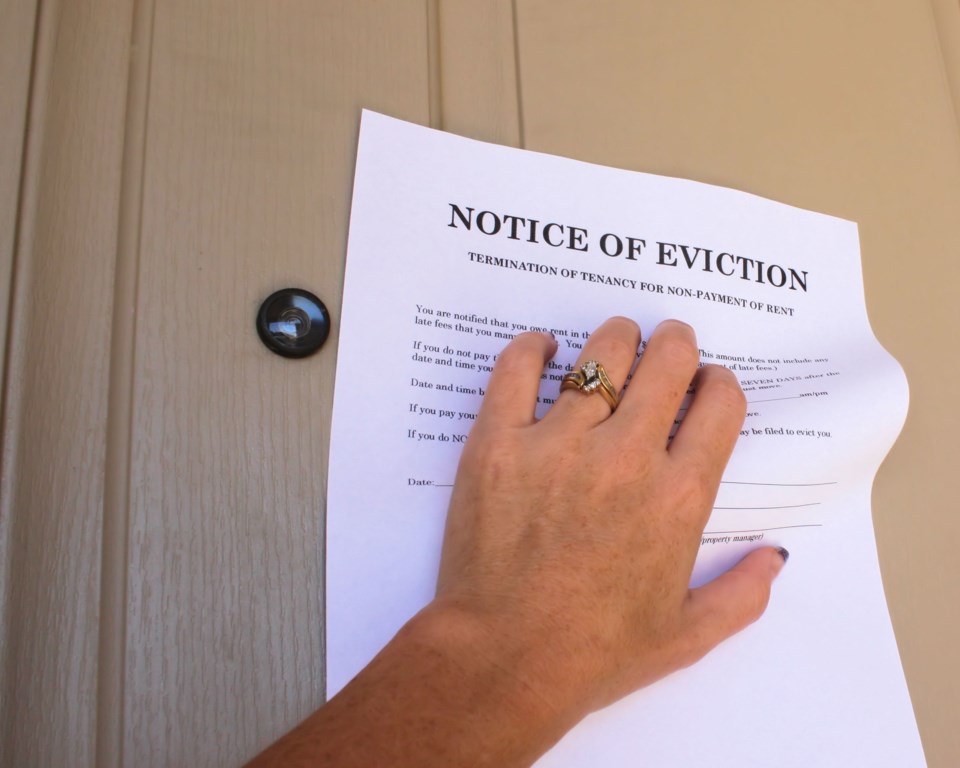OrilliaMatters welcomes letters to the editor at [email protected]. Please include your daytime phone number and address (for verification of authorship, not publication). The following letter is from Mathew Lund, a local paralegal who has been involved in numerous landlord/tenant cases.
I have worked in landlord-tenant matters now for nearly eight years and from someone who has experience working in the residential tenancy matters, I can safely say that I believe the Landlord and Tenant Board (LTB) is the worst-functioning department of any government agency in Canada.
I don’t say that lightly and I don’t say that to be overly hyper-critical. It’s not the LTB’s fault as the system the provincial governments have developed is a deplorable nightmare for both landlords and tenants. When you place one person’s home against another person’s income, you create a naturally oppositional system that pits landlords against tenants in a brutal all-out war.
I was told by a mentor when I first started working in LTB matters that there are generally only two ways for landlords to guarantee profits year over year in being a landlord. One is to be a slumlord, where you don’t care about the law or human rights and you basically steal and rip everyone off. The second is to be either a high-volume or high-end landlord, where you either have such high rent that only those that can truly afford it rent from you or you have several units that keep steady flows of income coming in.
However, far too many people have investment properties that are rented out for passive income. And while most may enter this arrangement with the best of intentions to create a better cushion for future prosperity, far too often, tenants fall behind in their rent and cannot ever catch up. And, yes, some toxic tenants do this intentionally, although that is the exception, not the rule. But with rents skyrocketing, the cost of living skyrocketing and wages stagnating, this is becoming a more regular occurrence than ever before. Before the global pandemic in 2020, the LTB was already approximately three to six months behind schedule in getting non-paying tenants evicted. Then the government shut down the LTB for eight months, and the number of tenants not paying rent exploded.
When the LTB reopened, to clear the backlog, several adjudicators were hired that were not suited for the position. Some landlords have gone as much as 18 months without collecting rent. For these landlords that just wanted an investment property, they began to default on their mortgages without rent coming in, causing even further troubles for both landlords and tenants.
On the other side of the coin, during that same pandemic, with the need no longer for people to come into the office, several Greater Toronto Area (GTA) residents sold their homes in the GTA. With the higher valuation in GTA properties, they were able to come up to our area and buy significantly cheaper yet larger homes for above-market retail prices, driving up the cost of homes. Then with the money left over they would buy an investment property with a flexible mortgage. They would move tenants in at the market value of rent, which was already exorbitant in 2020-21.
After the bank of Canada adjusted its interest rates, those flexible mortgages became cost prohibitive. So, for example, you started paying $1,200 on your mortgage, so you moved your tenant in to pay $1,500 a month. Now the rates go up and you’re paying $2,000 a month and now this investment property is losing money. Now landlords are stuck in a bind, because they can’t raise the rent above the guideline rent increases, which is currently 2.5 per cent per year.
This may sound like it’s few and far between, but for myself, I am currently representing dozens of matters that include these circumstances.
When landlords can’t afford to pay their mortgage, and the real-estate market is dry, so they can’t get out of the investment, landlords will do anything they can to evict tenants, including creating false narratives about moving family members in, creating false renovation plans to evict or making up exaggerated excuses as to behaviours with tenants to paint tenants in a far worse light than actually exists.
And the reality is that neither the landlord or the tenant are truly 100 per cent in the wrong. It’s a failed system that produces an adversarial arrangement. If people had trouble paying rent three years ago, how would they be able to pay double or in some cases triple the amount of rent today? Without better access to more affordable housing, tent cities will become the norm.
My advice to landlords is to not invest in a property unless you are prepared to cover the cost of the unit 100 per cent on your own and only look at the possibility of rent as a bonus. My advice for tenants, and this is key and very important: If a landlord serves you notice for eviction, that does not mean you have to be out on the date listed. You are not required to vacate your home unless you have an order from the Landlord and Tenant Board.
Nobody should ever have to be homeless in this country. All it takes is the political will to do what is right and not just what is politically expedient.
Mathew Lund
Ramara Township



